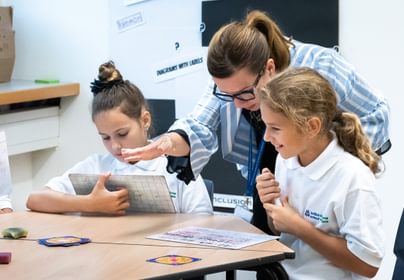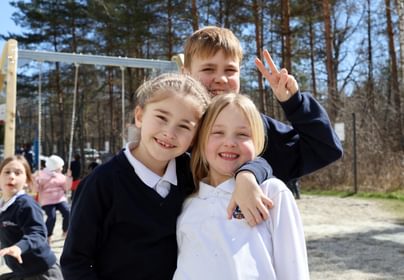Jazz Evenings are a kind of event I sometimes do with young musicians. In order to work, they require a high level of engagement on the part of the young musicians, sufficient repertoire and flexibility, and a great venue.
On 18 May, we had a Jazz Afternoon in the music room of the British International School of Ljubljana, after the British International Music School’s “Last Friday Jam”. The jam is an event that happens at the end of every block (5-6 weeks of classes, followed by a one-week break), and allows all the music students to participate in a performance for their parents and anyone else who comes to listen.
The jam was a success, with musicians of all ages and skill levels joining in to play and improvise in an environment where showing up counts as a success, and where support and encouragement easily overshadow students’ fears of making mistakes and being judged.
This was the perfect environment for the Jazz Afternoon to get started. Young musicians and teachers all played together, getting lost in the music and sharing an experience that went beyond just “playing the right notes” or impressing the audience with technique and skill. It was a truly special hour-and-a-half of music in which everyone had a chance to try and express themselves in a way that is not always possible with words alone.
Admittedly, that might sound a little far fetched to someone who has never connected with another person through music, but it is no more fantastic than spending a day hiking with a close friend and silently enjoying the vista at the end of the journey; drinking in the view and feeling that combination of pleasure and exhaustion from the effort, without needing to speak.
This was not a concert with seriousness and nervousness pressing upon the insecurities of musicians with self-doubt about their preparation. This was a happy event, often with laughter at the end of a song because of an unexpected ending, as musicians were also free to switch instruments and try things they had never done before. The audience participated anyway they liked: by grabbing an instrument, by applauding after an interesting solo, or by just smiling and enjoying some of the cake that was passed around during the show.
If the musicians themselves did not realise how rare and special an event of this kind is, then to me this also counts as part of its success. We have long ago left a world in which musicians played often, and practiced occasionally. Now, practising in solitude is the norm, with public appearances being characterised by many students as stressful and negative.
To the contrary, this was an unpaid event which I might choose over a paid one, because it also connected me with the reasons I started to play and study music in the first place. It was a relaxed and inclusive event in an atmosphere where everyone could be themselves, and where listening was more important than anything else – which is not always the case for many of today’s “conversations” or functions.
The result was enjoyable for both the musicians and the audience, and I am already looking forward to doing something similar in the future.
Toni Cater, BIMS Teacher



